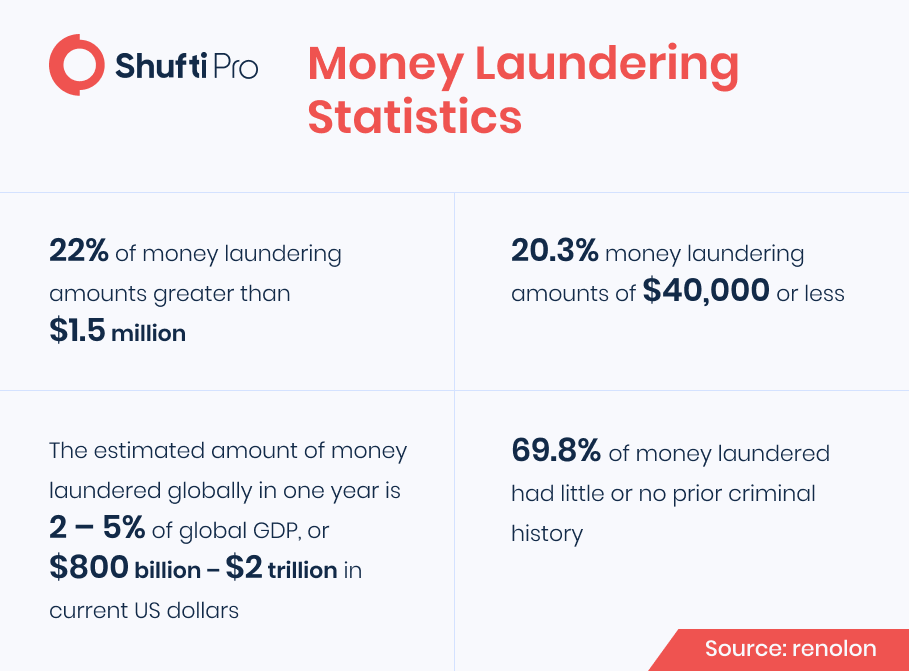AML and KYC Regulations in China – New Requirements to Secure Financial Industry

China’s financial system is undergoing a pivotal transformation. The country is limiting shareholdings on foreign ownership of securities, insurance and financial management institutions along with scrapping the entry barriers for such firms. The country has also taken an initiative called The Future of Financial Services in China and Beyond, which brings together both Chinese stakeholders and leading global financial institutions to examine how the ongoing transformation can be shaped to produce a resilient, effective, and open system that benefits both individual stakeholders along with future economic growth.
Despite inefficiencies in security systems and regulations, there has been a significant rise in financial crimes. Therefore, there is a dire need of enhancing China’s financial system, or at least its banks. Due to an increase in the number of money laundering and terrorist financing through various means, the country is struggling to cope with the global watchdog’s requirements. Thus, to secure the financial industry, China’s government is making efforts to strengthen the AML/KYC regulations.
China’s Financial Industry Overview
Multiple departments have taken initiatives to tighten the AML/CTF regime following China’s fourth-round mutual review by the Financial Action Task Force (FATF) on money laundering and terrorist financing activities. These efforts include the Standing Committee of the National People’s Congress amending the money laundering offence in Amendment XI to Criminal Law, the People’s Bank of China (PBOC’s) public consultation in December 2020, increased cooperation between the PBOC and the procuratorates, and a 368.2% increase in money laundering prosecutions in 2020 compared to 2019.
The PBOC began a public consultation on 30 December 2020, based on the structure established by the Measures for the Supervision and Administration of Anti-Money Laundering of Financial Institutions (Trial) (Doc No. YF [2014] 344, “2014 Measures”), which resulted in the Measures’ approval on 25 April 2021.
Therefore, developmental financial institutions, consumer financing firms, loan companies, non-banking payment institutions, and many other types of financial service organizations are now included in the new Measures’ scope of eligible entities.
Many of the newly added organizations have already been complying with existing rules’ AML/CTF requirements. For example, the Administrative Measures on Anti-Money Laundering and Counter-Terrorist Financing of Banking Financial Institutions apply to developmental financial institutions and consumer finance companies, while the Administrative Measures on Anti-Money Laundering and Counter-Terrorist Financing of Internet Financial Institutions apply to online microfinance companies.
China’s Central Bank Fines Zhongtian Securities $216k for AML Breaches
China’s Central Bank has fined Zhongtain Securities Co. Ltd. 1.37 million yuan for AML compliance failure. Thus, the company become the first brokerage house to be fined by the CBC. according to the People’s Bank of China, Zhongtian was alleged for having inadequate customer identification systems along with old-dated suspicious transaction reporting measures along with failure to comply with the regulatory obligations.
In addition to this, the bank has also highlighted the company’s senior executives that were also fined. Thus, the Chinese regulatory authorities are increasingly conducting inspections of banks and financial service providers. However, the crackdown initiative is aimed at preventing financial crime while majorly paying attention to enhancing the money laundering regulations. Furthermore, the central banks have also made clear that they will make ties with the government agencies and financial regulators to conduct a three-year crackdown on the money laundering activities in the country from 2022 to 2024. The regulators also agreed to use a national risk prevention system to fight money laundering, make compliance more rigid and improve the investigation protocols on financial crimes proceedings
China Strides Forwards with New KYC Rules to Rein Money laundering
By improving the Know Your Customer (KYC) requirements for financial institutions, China is taking initiatives against financial crimes such as money laundering and terrorism funding. As part of its broader programme to eradicate money laundering and terrorism financing from the region, China is strengthening the KYC and AML standards for financial institutions.
Financial institutions will now be expected to improve their due diligence procedures and identify the Ultimate beneficial Owners (UBOs) of accounts that are opened and maintained. All clients and other business entities must follow this procedure. Financial institutions must also have a continuous monitoring process for all transactions. This is mandatory to align financial operations with the People’s Bank of China (PBOC), China Securities Regulatory Commission, and China Banking and Insurance Regulatory Commission’s amended draft of the 2007 guidelines. The draft is not just being revised for banks and financial firms. Non-bank financial institutions will also be forced to follow the rules as well. The updated restrictions will also apply to third-party payment companies, distributors, agents, and online lending companies.

China Raises Penalty, Broadens Scope of AML Laws
The People’s Bank of China (PBOC) has released a revised draft of the country’s anti-money laundering law, which broadens the present law’s reach. In addition, the document advises that fines for infractions be increased, as well as other improvements. A revamped version is urgently needed, according to the PBOC, because the current AML statute was last amended 14 years ago. The draught anti-money laundering legislation intends to accomplish three objectives:
- Curbing money laundering, terrorist financing and other illegal activities
- Safeguarding national security and financial order
- Addressing gaps and deficiencies of the current AML law
A narrow scope of money laundering predicate offences, a lack of AML standards for non-financial industries and persons, weaknesses in the Ultimate Beneficial Owner (UBO) system, and insufficient regulatory penalties are among the flaws in the present AML law. The PBOC stated: “It is clear that anti-money laundering includes not only preventing money laundering crimes but also curbing illegal activities related to money laundering”.
Non-banking payment businesses, online micro-lenders, asset management companies, and financial leasing organizations are all included in the new law’s scope. Non-financial institutions, including property developers, accountancy firms, and precious metal exchanges, are also covered by the anti-money laundering legislation. The penalties for individuals who do not comply with regulatory standards and do not undertake CDD have also been increased. The new punishment for the offence, which was formerly CNY 500,000, may go as high as CNY 2 million. Furthermore, firm directors, executives, senior managers, and other people found guilty of this offence will get a written warning, forfeiture of the illegal gains, and a monetary fine ranging from CNY 20,000 to CNY 200,000.
How Shufti Can Help
Shufti’s all-in-all identity verification and AML screening services are powered by thousands of AI models along with all essential features that can help financial businesses to stay put with the regulatory obligations while ensuring that legit customers get onboarded. Banks opting for robust ID verification services can reduce the risk of getting sanctioned or experiencing hefty fines for being non-compliant.
Following are the key benefits of Shufti’s ID verification services;
- Determines the real identity of the customers in less than a second
- Generate results with 98.76% accuracy
- Screenings the customers against 1700+ global watch lists
- Helps to stay put with the regulatory obligations and secures businesses from sanctions
Want to learn more about KYC/AML services for financial businesses?

 Explore Now
Explore Now













